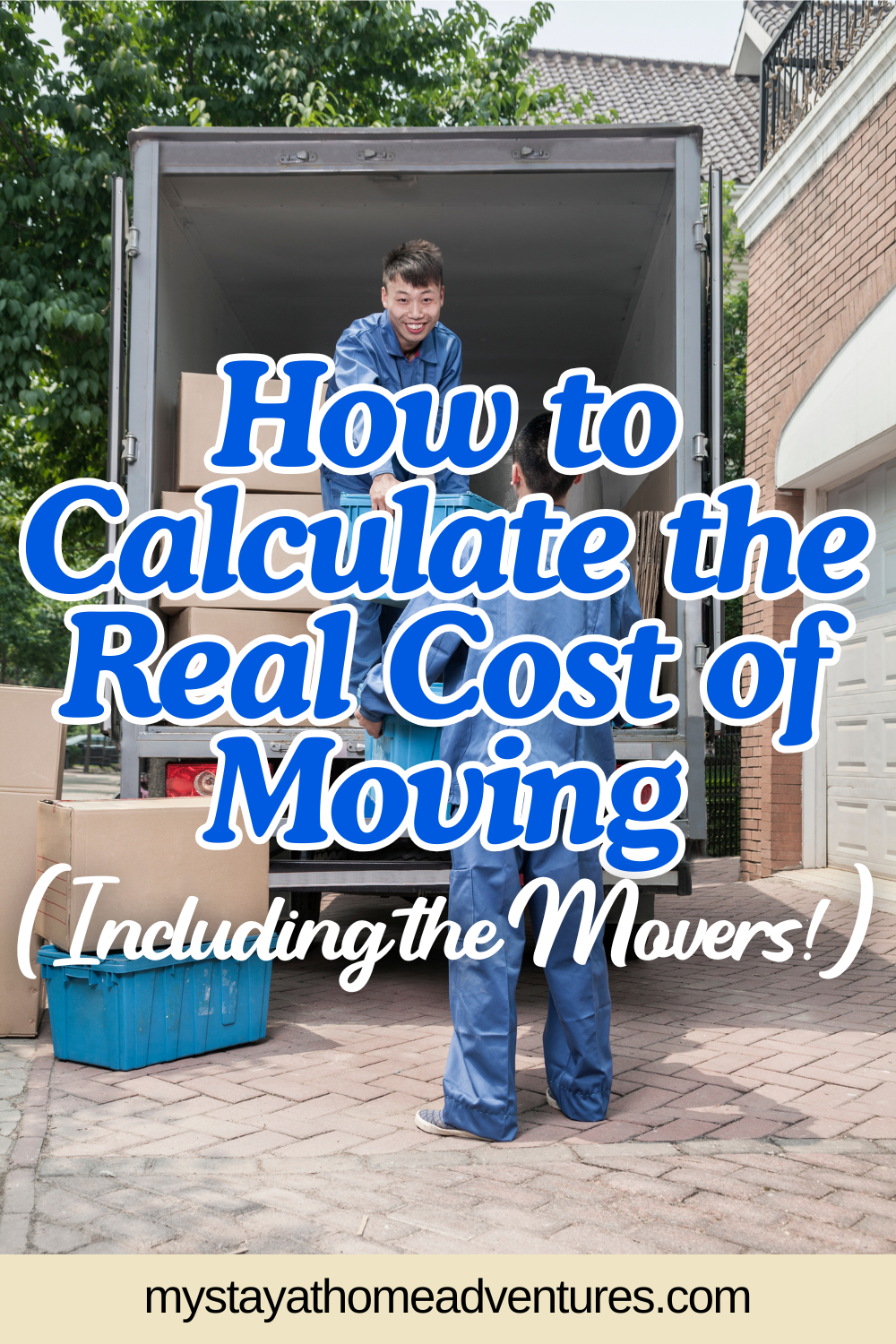How to Calculate the Real Cost of Moving (Including the Movers!)
This post may contain affiliate links which might earn us money. Please read my Disclosure and Privacy policies herePlanning a move can feel like a whirlwind of decisions, checklists, and expenses. While most people budget for a truck rental or moving crew, there’s often a wide gap between what they expect to pay and what they actually spend. If you’re trying to move smart—and stay within your budget—it’s important to understand the full picture.
From packing supplies to utility setup, and from cleaning fees to mover quotes, there’s a lot more to moving than just boxing up your stuff. Let’s break down the real expenses involved, and how you can plan ahead to protect your wallet (and your sanity).

Moving Costs: Beyond the Basics
You may start by budgeting for a moving truck or professional movers, but those are only part of the equation. The actual cost of moving includes many less obvious line items that catch people off guard.
Here are just a few examples:
- Utility transfer fees and deposits: Many companies charge service setup fees or require deposits when you move.
- Cleaning supplies or services: Whether you're leaving a rental or selling a home, it needs to be spotless before you leave.
- Temporary housing or meals: If there's a gap between your move-out and move-in dates, you’ll need somewhere to stay and eat.
- Storage costs: If your belongings can’t go straight into your new place, a storage unit becomes a temporary home for your furniture.
- New furniture or household items: Many people upgrade or replace things during a move, which adds to the overall cost.
And let’s not forget the “little” things—extra gas for multiple trips, tolls, or last-minute purchases when you run out of packing tape.
Professional Help: What You Really Pay For
Hiring movers can be a lifesaver, especially for families, seniors, or those on a tight schedule. But it's not always easy to estimate how much that help will cost.
In New Jersey, for instance, NJ movers may charge by the hour for local moves, while long-distance moves are usually priced by weight and distance. Costs can also fluctuate based on demand—weekends, holidays, and peak summer months are typically more expensive.
Here’s what can affect the price:
- Number of movers needed
- Size and weight of your items
- Use of stairs or elevators
- Long walking distances from truck to door
- Disassembly or reassembly of furniture
- Fragile or specialty items (like pianos or art)
Many companies offer add-ons like packing, storage, and insurance, which can drive the cost up. Be sure to ask for a full breakdown when comparing estimates. And remember—cheaper isn’t always better if it means poor service or no damage coverage.
To get a clearer picture of what your relocation might actually cost, this breakdown of Moving Costs in NJ covers everything from hourly rates to commonly overlooked surcharges.
How to Build a Budget for Your Move
A successful move starts with a solid plan—and that includes a clear budget. List out everything you might need to pay for, including:
- Moving supplies (boxes, tape, labels, padding)
- Mover estimates or truck rental
- Gas, tolls, and parking
- Insurance for valuable items
- Temporary accommodations (hotel, food, etc.)
- Cleaning expenses
- Utility setup fees
Once you’ve created a full list, build in a 10–15% buffer for unplanned expenses. This can help you tighten up spending in other areas during your moving season.

Save Money Where You Can
The good news? There are plenty of smart ways to cut costs without cutting corners:
- Declutter before you pack: Fewer items mean fewer boxes—and possibly fewer labor hours. Sell or donate what you don’t need.
- Move during off-peak times: Weekdays and cooler months usually cost less.
- Source free supplies: Ask local stores for boxes or check community marketplaces.
- DIY what you can: Even if you hire movers for the heavy lifting, packing yourself can save a lot.
Speaking of packing—don’t underestimate the time and stress it can bring. These essential packing tips can help you stay organized and avoid damage, which also saves money in the long run.
Prevent Mistakes That Cost You Later
When you’re juggling logistics, it’s easy to forget something small—like labeling boxes properly or scheduling utility transfers. These oversights can lead to expensive problems, like broken items, delayed move-ins, or lost time.
To make your move smoother, plan ahead and avoid the most common pitfalls. Here's a helpful breakdown of common moving day mistakes that can derail your plans—and how to sidestep them.
Final Thoughts
Moving is more than a change of address—it’s a transition that requires time, energy, and money. By understanding all the real costs involved—not just the big-ticket items—you’ll be able to budget more accurately, avoid stress, and start fresh in your new space with confidence.
Whether you’re hiring a crew or doing it yourself, the key is preparation. The more details you consider up front, the fewer financial surprises you’ll face down the line.








